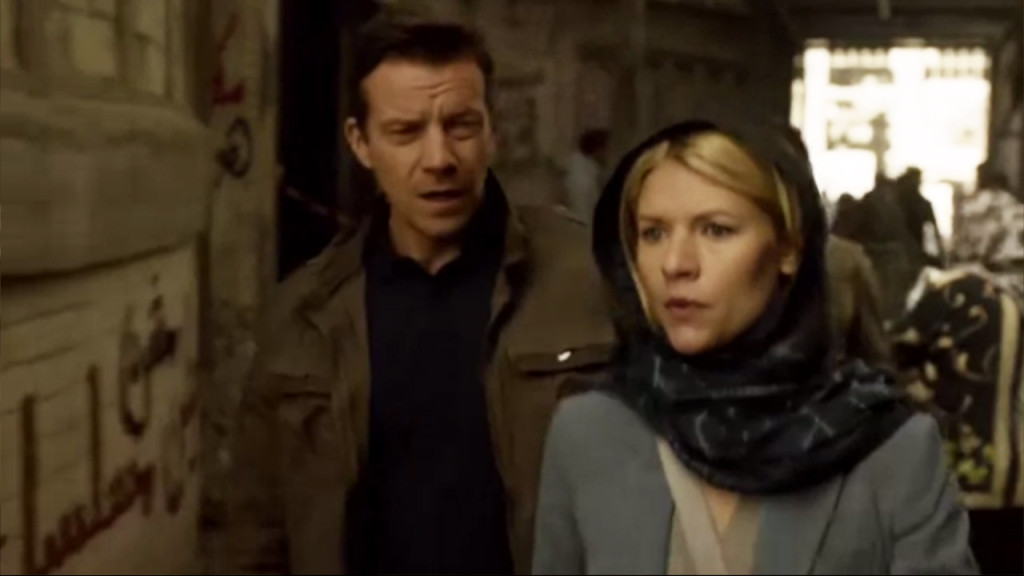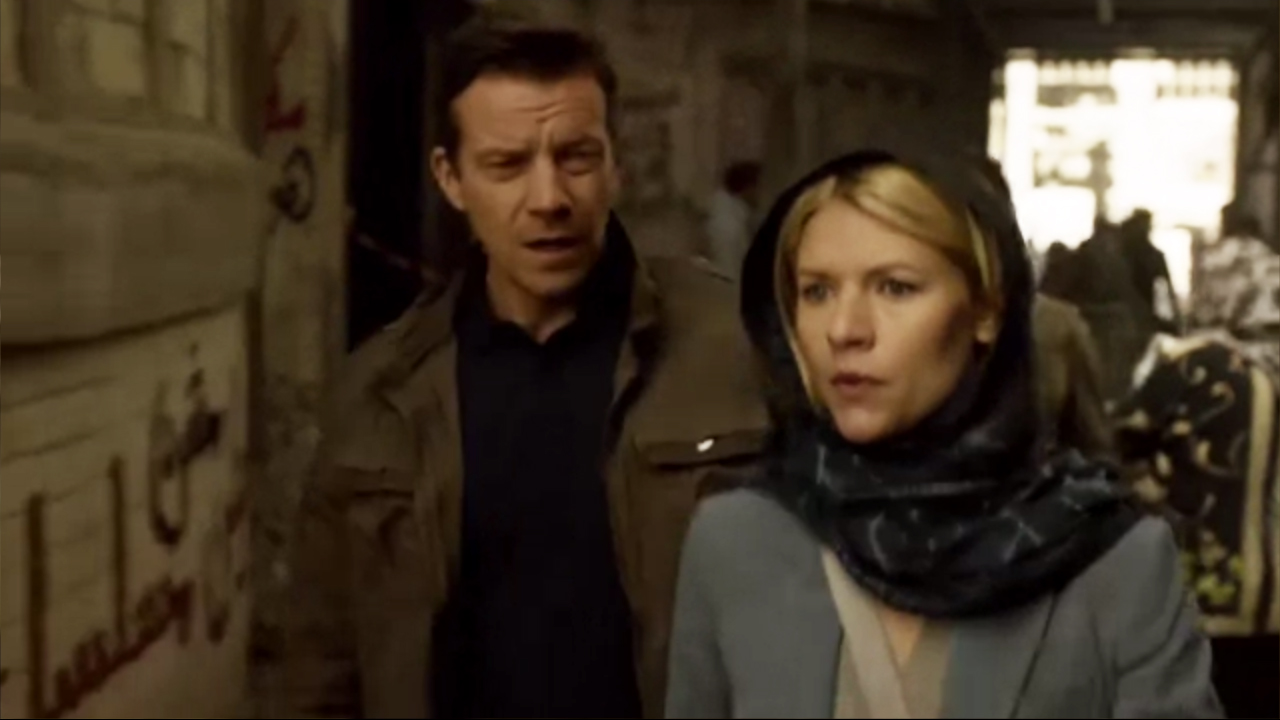
What’s wrong with Homeland’s political message? The very first season of Homeland explained to the American public that Al Qaida is actually an Iranian venture. According to the storyline, they are not only closely tied to Hezbollah, but Al Qaida even sought revenge against the U.S. on behalf of Iran. This dangerous phantasm has become mainstream “knowledge” in the U.S. and has been repeated as fact by many mass media outlets. Five seasons later, the plot has come a long way, but the thinly veiled propaganda is no less blatant. Now the target is freedom of information and privacy neatly packaged as the threat posed by Whistleblowers, the Islamic State and the rest of Shia Islam.
In the summer of 2015, the American television serial Homeland was shot in Berlin. June and July saw parts of the city dedicated to capturing the doings of former CIA Agent Carrie Mathison (Claire Danes) in her new role as security advisor to a German humanitarian oligarch, Otto Düring (Sebastian Koch). Amidst hints of a hacker conspiracy and secret agreements between the U.S. and Germany, the show attempts to mirror real-life events with an Edward Snowden-style leak revealing a joint project by the CIA and the BND (German Federal Intelligence Service) illegally spying on German citizens. But unlike real life, this leak forced Germany to release all arrested ISIS terrorists.
The series has garnered the reputation of being the most bigoted show on television for its inaccurate, undifferentiated and highly biased depiction of Arabs, Pakistanis, and Afghans, as well as its gross misrepresentations of the cities of Beirut, Islamabad and the so-called “Muslim world” in general. For four seasons, and entering its fifth, Homeland has maintained the dichotomy of the photogenic, mainly white, mostly American protector versus the evil and backwards Muslim threat. The Washington Post reacts to the racist horror of their season four promotional poster by describing it as “white Red Riding Hood lost in a forest of faceless Muslim wolves”. In this forest, Red Riding Hood is permitted to display many shades of grey – bribery, drone strikes, torture, and covert assassination– to achieve her targets. She points her weapon of choice at the monochrome bad guys, who do all the things that the good guys do, but with nefarious intent.
It cannot be disputed that the show looks good and is well acted and produced, as its many awards prove. But you would think that a series dealing so intensively with contemporary topics including the war on terrorism, ISIS and ideological clashes between the U.S. and the Middle East would not, for example, name a key terrorist character after the former real-life Pakistani ambassador to the United States. Granted, the show gets high praise from the American audience for its criticism of American government ethics, but not without dangerously feeding into the racism of the hysterical moment we find ourselves in today. Joseph Massad, Associate Professor of Modern Arab Politics and Intellectual History at Columbia University, addresses this deep-seeded racism of American media towards the Middle East: “‘Homeland’ hardly deviates from this formula [of racist programming], except to add that Arabs are so dangerous that even all-American White men can be corrupted by them and become equally dangerous to America”.
At the beginning of June 2015, we received a phone call from a friend who has been active in the graffiti and street art scene in Germany for the past 30 years and has researched graffiti in the Middle East extensively. He had been contacted by Homeland’s set production company who were looking for “Arabian street artists” to lend graffiti authenticity to a film set of a Syrian refugee camp on the Lebanese/Syrian border for their new season. Given the series’ reputation we were not easily convinced, until we considered what a moment of intervention could relay about our own and many others’ political discontent with the series. It was our moment to make our point by subverting the message using the show itself.
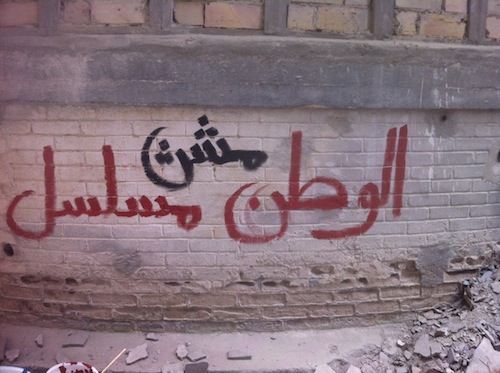
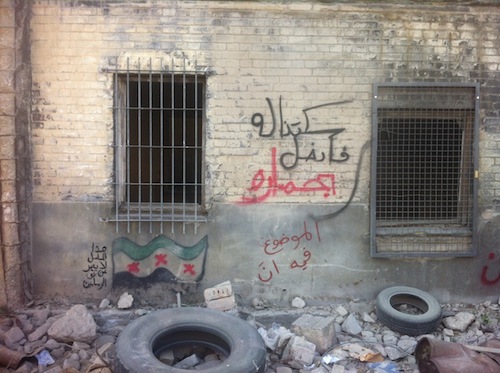
Bottom: “The situation is not to be trusted”
Left: “This show does not represent the views of the artist” (Image courtesy of the artists)
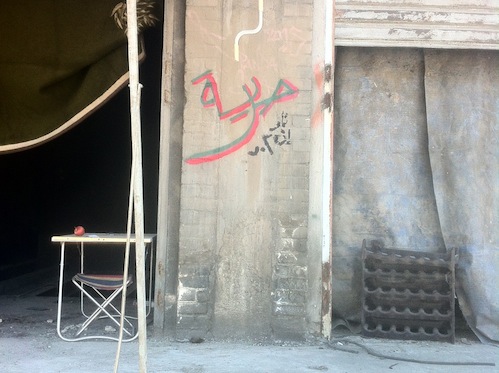
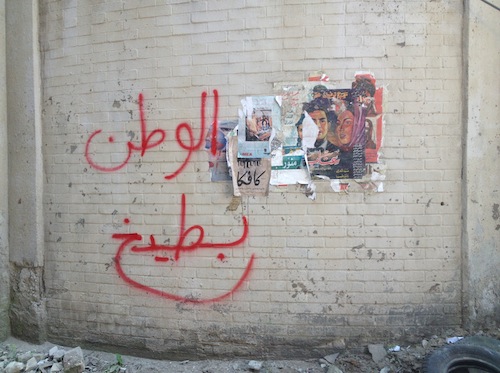
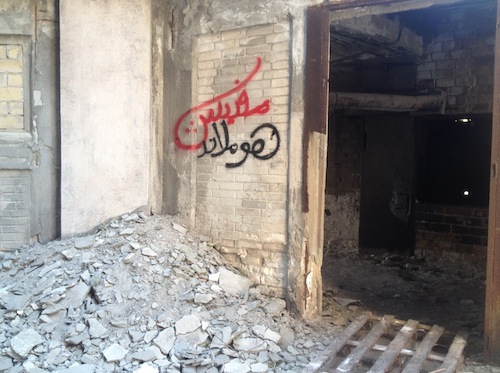
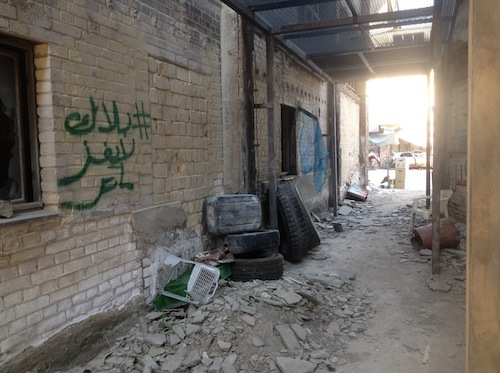
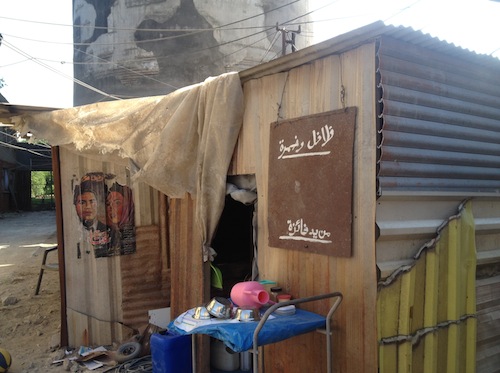
The falafel stand belongs to an elderly lady named Faiza, a Syrian Christian who has seen a lot of life and lived in a multicultural society for much of it. She has understood that good food and an occasional drop of Arak solve many problems, and although she sells only falafel and hummus, she added alcohol as a visual reminder of the better times, an act of resistance to her current circumstances and a premonition of a return to the life she once knew and enjoyed, even through hardships. She is well-liked in the neighbourhood, and although her sign does mention “alcohol”, it also brings smiles to the residents of the camp. (Image courtesy of the artists)
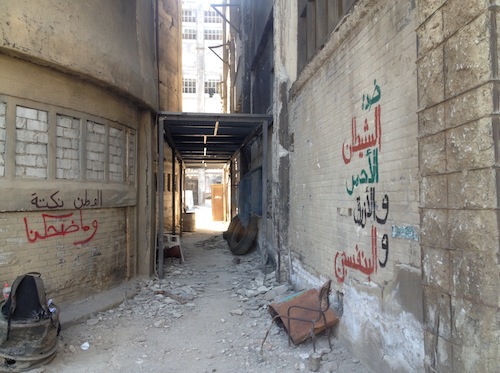
Left: “Homeland is a joke, and it didn’t make us laugh” (Image courtesy of the artists)
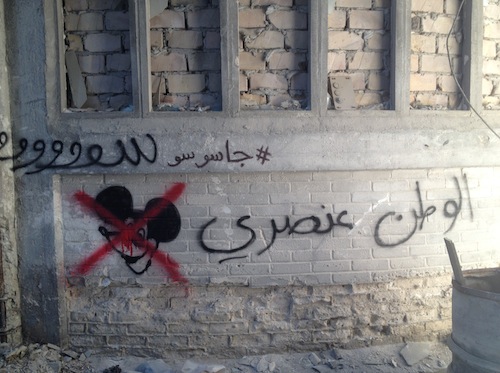
Top: #gasewsew (a reference to the Egyptian Abla Fahita puppet on spying) (Image courtesy of the artists)
In our initial meeting, we were given a set of images of pro-Assad graffiti- apparently natural in a Syrian refugee camp. Our instructions were: 1.) the graffiti has to be apolitical 2.) you cannot copy the images because of copyright infringement 3.) writing “Mohamed is the greatest, is okay of course”. We would arm ourselves with slogans, with proverbs allowing for critical interpretation, and, if the chance presented itself, blatant criticism directed at the show. And so, it came to be.
The set decoration had to be completed in two days, for filming on the third. Set designers were too frantic to pay any attention to us; they were busy constructing a hyper-realistic set that addressed everything from the plastic laundry pins to the frayed edges of outdoor plastic curtains. It looked very Middle Eastern and the summer sun and heat helped heighten that illusion. The content of what was written on the walls, however, was of no concern. In their eyes, Arabic script is merely a supplementary visual that completes the horror-fantasy of the Middle East, a poster image dehumanizing an entire region to human-less figures in black burkas and moreover, this season, to refugees. The show has thus created a chain of causality with Arabs at its beginning and as its outcome – their own victims and executioners at the same time. As was briefly written on the walls of a make-believe Syrian refugee camp in a former Futterphosphatfabrik (animal feed plant) in the outskirts of Berlin, the situation is not to be trusted- الموضوع فيه أن.
The Arabian Street Artists //
Heba Amin
Caram Kapp
Stone
* Our intervention was broadcast on October 11, 2015, “Homeland” Season 5, Episode 2.
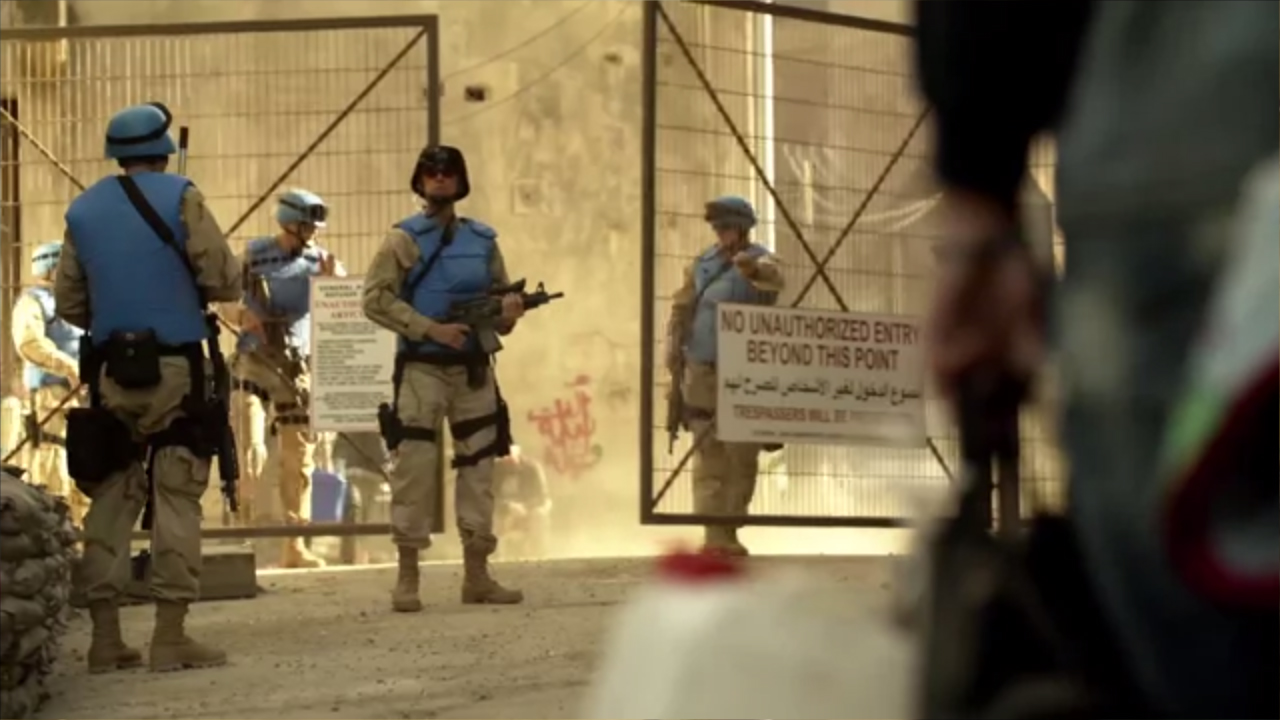
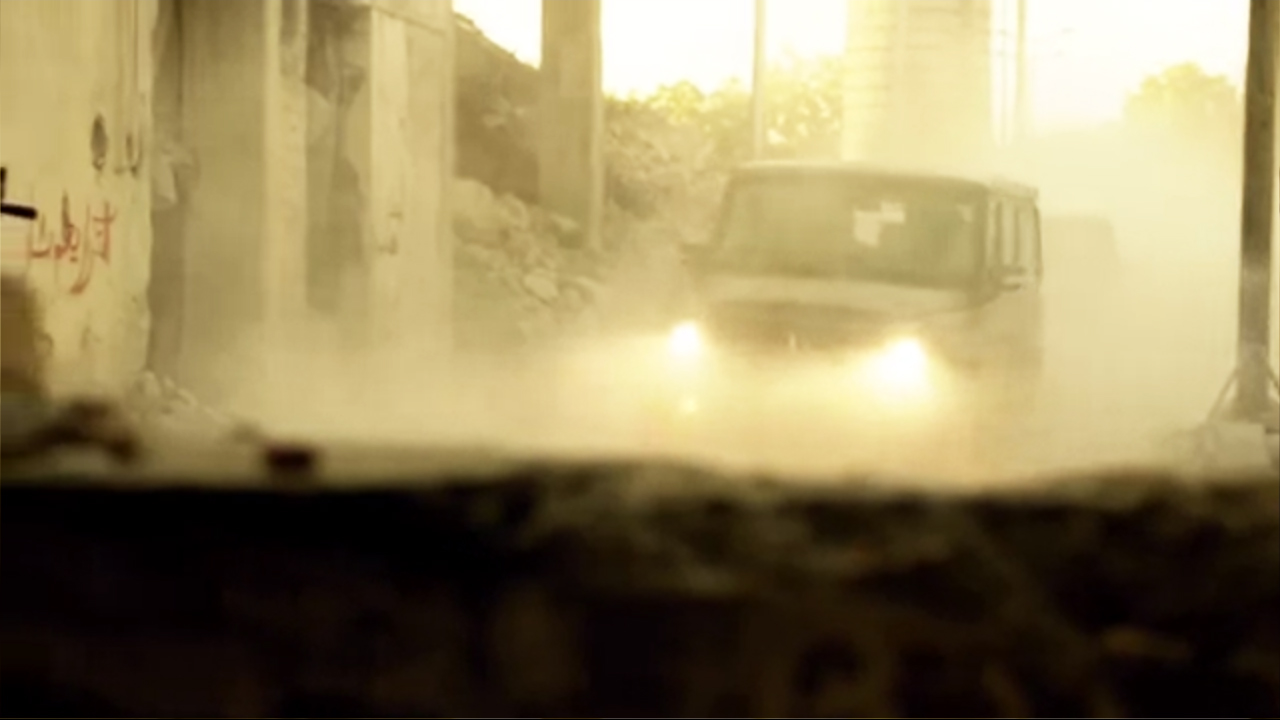
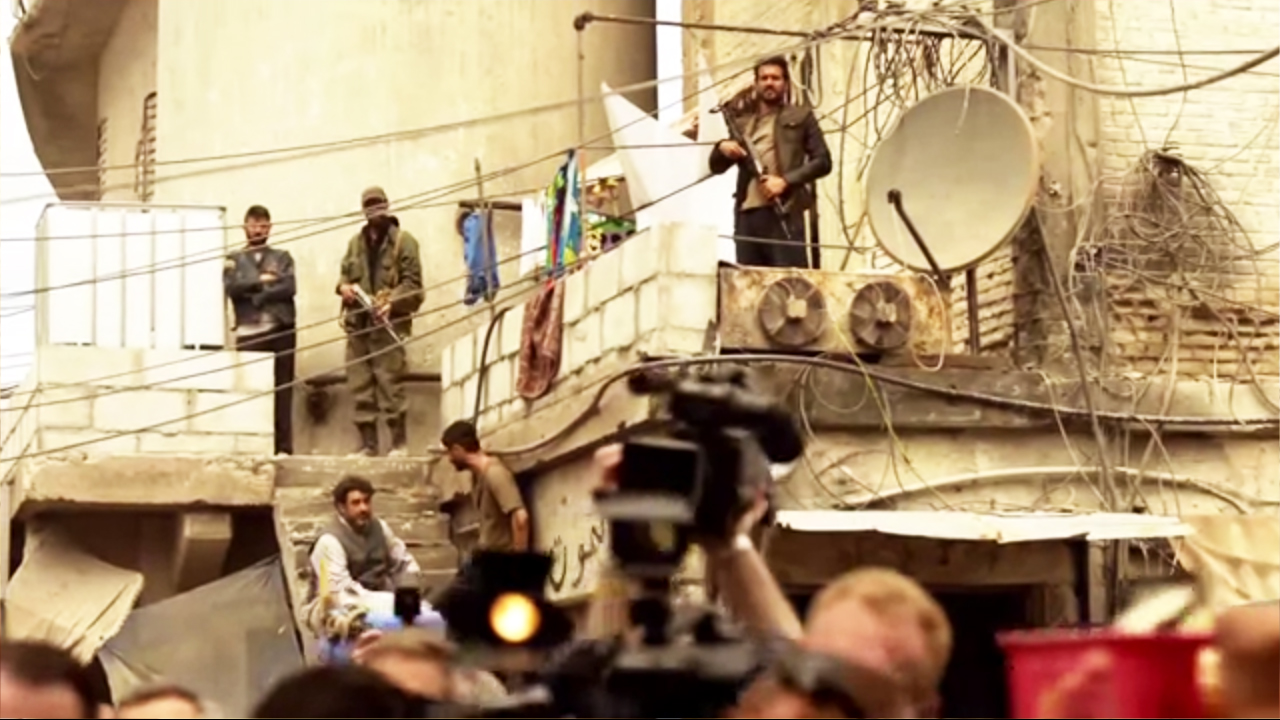
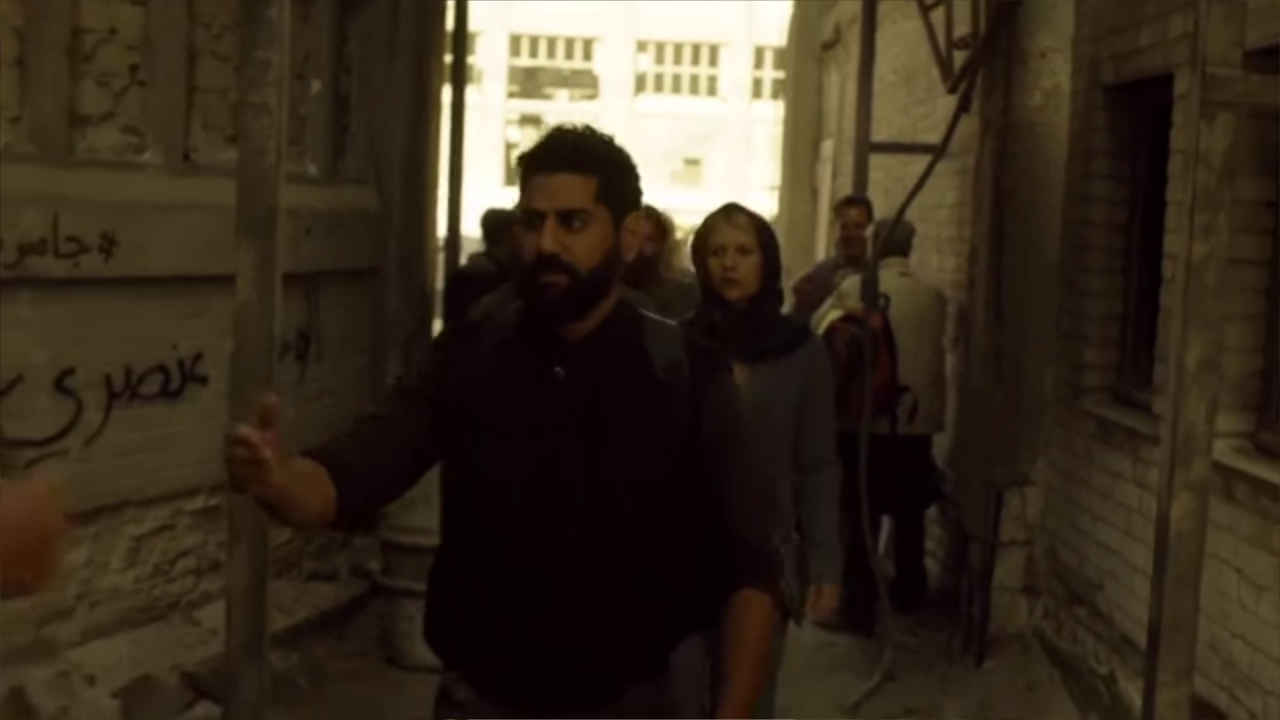
WE SAID THIS: Don’t miss Paris’s ‘Locks of Love’ Replaced By Tunisian Artist’s Calligraphiti.


